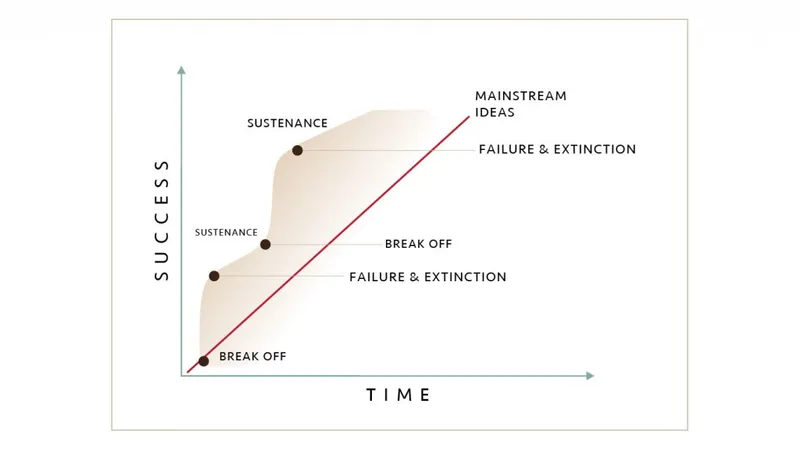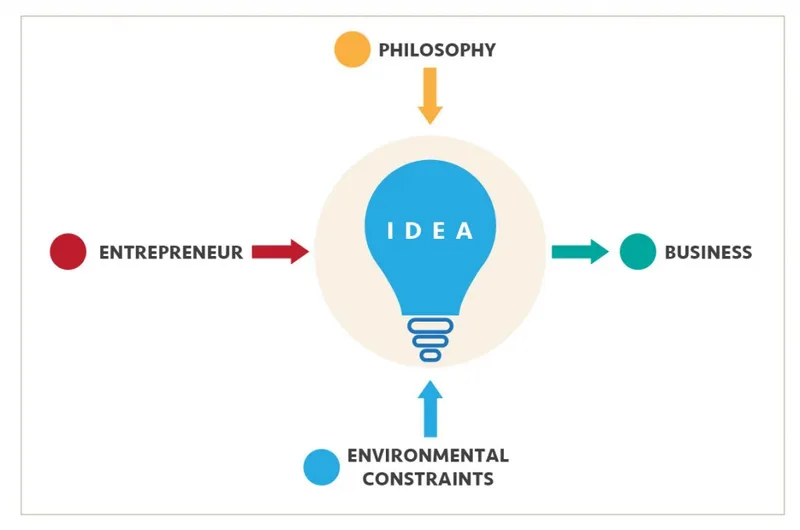[What is an Entrepreneur?] What a piece of work is a man!

i will tell you why; so shall my anticipation prevent your discovery, and your secrecy to the king and queene: moult no feather. i have of late, (but wherefore i know not) lost all my mirth, forgone all custom of exercises; and indeed, it goes so heavily with my disposition; that this goodly frame the earth, seems to me a sterile promontory; this most excellent canopy the air, look you, this brave o'er hanging firmament, this majestical roof, fretted with golden fire: why, it appeareth no other thing to me, than a foul and pestilent congregation of vapours. 'what a piece of work is a man! how noble in reason, how infinite in faculty! in form and moving how express and admirable! in action how like an angel! in apprehension how like a god! the beauty of the world! the paragon of animals! and yet to me, what is this quintessence of dust? man delights not me; no, nor woman neither; though by your smiling you seem to say so.
- shakespeare, hamlet, prince of denmark, act ii, scene 2
The most widely accepted parameter for the evolutionary success of any specie is its population, and the very fact that the number of entrepreneurs is on the rise is a proof of the ‘specie’ being successful.
Apart from population, the two other parameters which make a specie successful are growth, and its ability to survive. A startup is noted for its ability to grow, and an entrepreneur is significant for its survival instinct. At this point of our discourse of trying to understand an entrepreneur, we must analyse the contrasts between an entrepreneur, a startup and a new business from the evolutionary standpoint.
Atta Galatta versus Flipkart
Consider my favourite bookshop – Atta Galatta in Koramangala, Bangalore. It is a beautiful venue for literary events, a collaboration place for artists, a rare book stall in Bangalore with availability of rare vernacular titles, and of course, a perfect place to read and write while sipping on their affordable filter coffee. Although the bookshop-café is only a few years old, we do not call it a startup. As a matter of habit, we do not call shop or café owners entrepreneurs either. It is an accepted fact that not every new business is a startup or an entrepreneurial venture.
According to the uber startup guru Paul Graham, a startup is a company designed to grow fast. Being newly founded does not in itself make a company a startup. Nor is it necessary for a startup to work on technology, or take venture funding, or have some sort of ’exit’. The only essential thing is growth. Everything else we associate with startups follows from growth.

Most businesses are tightly constrained in either of the two criteria. The distinctive feature of successful startups is that they're not. This is the reason Flipkart was a startup from the very beginning, and Atta Galatta was never meant to be one. Need not mention, being an old-school writer myself, I prefer Atta Galatta over Flipkart, simply because Flipkart doesn’t offer me a comfortable chair to sit and read, nor does it serve me any filter coffee. However, the fact remains that Flipkart caters to a much larger customer base than Atta Galatta ever will, and has much larger potential for growth.
Let’s look at this from an evolutionary standpoint. While a specie accustomed to stay in its environment feels safe to stay there, the need to reach out is the challenge where most fail – as the nursery Hindi rhyme goes, a fish when pulled out of water, dies. The same happens to a traditional bookshop when it tries to address to the size of customers its DNA is not accustomed to cater. While a bookshop’s pursuit is sustenance, the pursuit of a startup is success.
The evolutionary history of humankind is similar to that of a startup. Homo Sapiens emerged from the abundance of Africa and reached the deserted New Zealand as late as 1250–1300 CE. Humans have conquered one territory after the other, and in the process partially adapted itself to the new conditions, and partially modified its environment to adapt to his needs.
The growth of a startup is its distinct characteristic and the biggest parameter of its survival. A 1% weekly growth of a startup means the enterprise growing 1.7 times over a year, whereas a 10% growth means the enterprise growing 142 times over the same year, under the same weather conditions, and with the same teams playing the IPL. If we compare human population growth to other species, we find that the analogy holds true.
Here we must also account for the fact, that for the first few million years, human existence was more or less uneventful. It is only over the past seventy thousand years, that we have been a startup. But probably, we have been an entrepreneur all along. Although similar terms and used interchangeably, entrepreneurship is more struggle-driven, whereas a startup is driven by results. While most species die down during this phase, an entrepreneur is known for his remarkable ability to survive.
A startup is symbolized by growth, whereas an entrepreneur is symbolized his ability to survive.
Bangalore has emerged a major startup hub in India. While the factors for Bangalore becoming a startup hub will be explored in my subsequent essays, the fact – that an entrepreneur could have pursued similar ventures in a small town with very little competition and with the chances of better survival – cannot be negated. It is also possible an entrepreneur would find it easier to get a local investor in a small town, than the finding an investor in the competitive ecosystem of Bangalore.
However, like every other successful specie, entrepreneurs tend to flock together. This trend is common among many successful business communities across the world. Sticking together helps in a B2B way, and leads to a resource abundance. It also helps them in providing opportunities to each other in a collaborative yet competitive manner, but what it primarily does is that it helps the entrepreneur cope up during his period of struggle. It is probably this survival that leads to success, and the success of others adds to the survival instinct of a struggling entrepreneur. The success story of Flipkart keeps many entrepreneurs and investors hopeful, and it is this hope that keeps an economy going.
It is also important to note that startup hubs are cities, not countries. Country is a comparatively recent idea. For a very long time, cultural human evolution was driven by city-states, which were either production hubs or trade posts. ‘Startup friendly’ laws of a country helps, but it is also the local infrastructure, accumulated knowledge, and the struggle and success of the surrounding people that plays an important role. Most great startups were founded during times of recession have found success together with changing times and demands. This is the reason startup hubs are sprouting everywhere – from Boston to Bangalore, from Silicon Valley to Santiago, from Tel Aviv to Toronto.
A giant leap for mankind

What makes an entrepreneur survive and a startup grow? It is probably his ability to adapt to the changing circumstances. Growth in population and coming together to collaborate in startup all become a part of this adaptive strategy of the specie. Regardless of the fact that it is the entrepreneurs who instil ‘hope’ in an economy, purely because of his appetite for risks, ability to adapt, and defy the natural evolutionary trajectory, an entrepreneur is different from a regular business man, or an inventor in four possible ways.Firstly, the mainstream economic activities evolve through tried and tested methods. Their refinements are slow and micro in nature. They rely on methods which are safe and secure and would at least guarantee survivability. An entrepreneur seldom sticks to the accepted norms and works regularly towards more innovative approaches. They are constantly adored for what we call as ‘out of the box thinking’. They view the same environment differently; then adopt it and adapt themselves to the environment.
Secondly, entrepreneurs tend to create niche spaces for themselves and gain specialty in their chosen path. Lamarck’s theory of use and disuse states that in the evolutionary process, what is useful is kept and what is not, is discarded. Even a cursory glance at the working nature of entrepreneurs would establish how efficiently they use or discard methods, techniques etc. depending on their utility.
Thirdly, Darwin’s theory of evolution and natural selection also talks about survival of the fittest. If we assume market as nature then the forces of supply and demand as natural forces acting on an entity to bring about a change. An entrepreneur who has succeeded or can be claimed as fit to survive has battled these forces using ingenious methods or business acuity to be where they stand now.
Finally, as in animal evolution, here too we can find marker species which have brought about stark changes and can be taken as those who ‘mark’ a jump in evolutionary phase. Consider the work of Ford or Steve Jobs. Do they not mark distinct points in ways business is perceived and conducted?
What is an Entrepreneur?
If now, entrepreneurs can be considered as a jump mainstream evolutionary process, it is imperative to consider the factors that cause this jump. Here we can have two approaches.
In the first approach, we consider the objective measurement of success, survival and failure. These are generally done in monetary terms of turn-over, profits, people employed etc. They can be quantitatively measured and compared. Much has been done on this front.

In the second approach of measurement, which is more subjective in nature, the entire process from inception of idea to setting up a business to running it comes into play. The philosophy behind the whole process is a result of the socialization and inherent factors in the entrepreneur. The result however could only be subjectively measured. An entrepreneur typically manifests his beliefs, ethos, understanding, ideology and style into his organization and his surroundings, but to what degree? To me, it appears that the subjective success could be measured by answering the question –
To what extent does the product, service or work culture, embody the philosophy of the entrepreneur; or to what extent are the creator and the created same?
It is this question that we will try to answer in our subsequent essays.
The famous French philosopher and literary critic Michael Foucault, in his celebrated 1969 essay, asked ‘What is an Author?’ In the same tradition we at Your Story ask, ‘What is an Entrepreneur?’ Finding an answer to this might be beyond our abilities, but the joy of asking the right question is probably what matters.
References :
1. Startup = Growth, Essay, Paul Graham
2. Jared Diamond, 1997, Guns, Germs, and Steel, W. W. Norton
3. Yuval Noah Harari, 2015, Sapiens, A Brief History of Humankind, Harper.
4. Charles Darwin, 1859, On the origin of species by means of natural selection, John Murray
Image Credit : Shutterstock
Related Essay - [What is an Entrepreneur?] Besides, I gave them fire


![[What is an Entrepreneur?] What a piece of work is a man!](https://images.yourstory.com/cs/wordpress/2015/06/yourstory-what-is-an-entrepreneur-2.jpg?mode=crop&crop=faces&ar=2%3A1&format=auto&w=1920&q=75)




